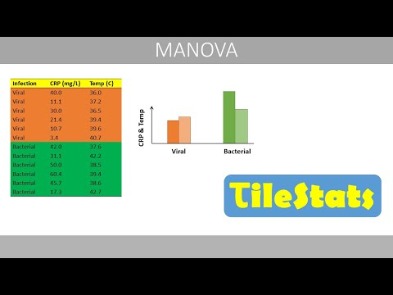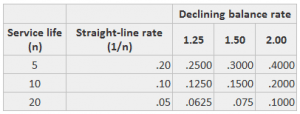
Accounting team members in different locations can access the cloud-based data, download it, and discuss it for business purposes. Everyone can attend this virtual meeting to enhance collaboration and give useful input. Since your accounting system is connected to the cloud, they can use their own login to access reports like the general ledger, balance sheet, or cash flow statement whenever they need. All data transferred online is protected with 128-bit SSL encryption. With QuickBooks Online Advanced, you can also restore a version of your company data based on a chosen date and time. You can also accept payment directly through this online invoice by credit card, debit card, and ACH bank transfers.
Best for Maximizing Tax Deductions
In simple terms, “the types of liquidity ratios cloud” or “cloud computing” refers to the delivery of computing services via the internet. That may be storage services, data analysis tools, or – in the case of this article – accounting services. Online accounting software is a type of application hosted on remote servers providing financial tools like billing, invoicing, and reporting. Web-based accounting software helps small businesses and medium-sized companies complete financial tasks from any device with an internet connection. When exploring different options for migrating to cloud-based technology, organizations should consider the complexity and nuances of accounting for cloud computing.
QuickBooks Online’s widespread adoption is also supported by strong brand recognition and a reputation for reliability in the accounting software market. Xero and FreshBooks are frequently highlighted for their user-centric design and intuitive functionalities. Xero has a fairly comprehensive feature set, which provides expense management, bank reconciliation, and the structure of a fleet lease multi-currency accounting.
Benefits
Cloud accounting solutions can take your business to the next level so that you and your employees can become more efficient by being more mobile and organized. For example, cloud-based accounting allows an employee to invoice a customer on the road, perhaps just after a service has been performed. Cloud accounting with a comprehensive system platform like FreshBooks can streamline your business processes and improve efficiency as your business grows. Cloud-based accounting software employs advanced security measures, including encryption and multi-factor authentication, to protect sensitive financial data. Many providers comply with industry standards and regulations for data protection, especially for sensitive financial information.
This helps to speed up payment times and reduces the level of administrative work that you or your staff are required to complete. Having open APIs means that you can add a range of other third-party apps and tools that can help to expand your business system. This can include double entry accounting software and invoicing apps.
All you need is a device and internet connection to access the cloud and download the required data files. Companies with remote employees can benefit greatly from this feature. Since not every employee can attend onsite meetings, remote access to the data files will streamline the overall work experience and flow. Multiple users from your accounting team can access data files on the cloud and collaborate simultaneously. Businesses with accounting team members scattered across the country can benefit from this feature.
Can I automate tasks with cloud-based accounting software?

TrulySmall Accounting is full accounting software for small businesses for $18 per month. Features include downloading bank transactions, sending invoices, tracking expenses, accepting payments and running essential accounting reports. For $27 a month, the Kashoo plan is an advanced accounting plan for medium- to large-sized businesses. Advanced features include double entry, payroll integration, project cost tracking, customization options and the ability to collaborate with an accountant. FreshBooks offers four plans starting with the Lite plan at $19 per month ($9.50 per month during the current promotion). This plan allows users to send unlimited invoices to up to five clients, track unlimited expenses, send unlimited estimates, track sales tax and accept credit card payments.
- We also gave credit to those apps that either provided users with a free version of the software or at least a free trial period.
- Interested parties should not rule out a migration to the cloud simply because of perceived cost, but should instead consider the impact this shift could have on their organization overall.
- Cloud accounting providers use encryption, rewriting your information into a secured, unbreakable code, to send and store your data.
- Oracle also offers predictive analytics and AI-driven insights to improve decision-making.
- As long as you keep everything up-to-date on a regular basis, you know you’re always seeing real-time data in your accounting software.
The simple, straightforward platform allows users to easily create invoices, manage expenses, generate reports, accept credit card payments through Square and more. With Zoho, users can send customized invoices, connect to payment gateways, track expenses, create a variety of business reports and calculate taxes. The portal allows users to share recent transactions, accelerate the estimate approval process, capture feedback and receive bulk payments in a timely manner. Zoho’s advanced plans include strong project management features like the ability to manage people and expenses at the project level. Because Zoho is cloud-based, users can download the WorkDrive Desktop app, sync files or folders right to their device and return on equity – roe definition access and work on files offline.
Oracle is a cloud-based financial management software that leverages AI to automate and optimize financial processes for businesses. MYOB is a cloud-based accounting software that provides scalable solutions tailored for small to medium-sized businesses. Through thorough reviews and expert insights, I will guide you in finding the best cloud-based accounting software tailored to your organization’s requirements. Whether you’re managing small businesses or large enterprises, my goal is to help you enhance efficiency, accuracy, and financial control.
Cloud accounting is a system that allows multi-user access and safe online or remote server storage. Your users send all your data to cloud providers where the same data is processed and safely stored, and returned. Cloud technology allows business processes to be streamlined and tailored to company growth.